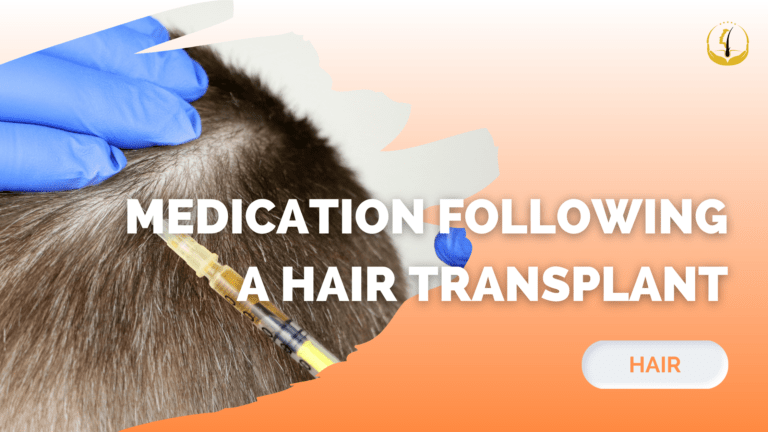Hair transplants have become increasingly popular as a solution for hair loss, offering a chance to regain confidence and a full head of hair. However, the success of a hair transplant doesn’t solely depend on the procedure itself. Proper post-operative care, including medication, plays a crucial role in ensuring a successful and healthy recovery. In this blog, we will delve into the essential medications recommended following a hair transplant, focusing on the key aspects and benefits.
SMART Medication Protocol
Medication Protocol is a versatile approach to stimulate follicle growth, offering a flexible solution for individuals considering hair restoration, and it is exclusively available at GLOJAS. Whether used in conjunction with a hair transplant procedure or as a standalone treatment, this protocol harnesses the power of specialized medications to encourage the growth of healthy hair follicles.
Antibiotics
After a hair transplant, your scalp is vulnerable to bacterial infections. To prevent this, your surgeon may prescribe antibiotics. These medications are crucial in warding off potential infections that could lead to complications and negatively impact the results of the transplant. It’s vital to complete the full course of antibiotics as prescribed, even if you start feeling better sooner.
Pain Medication
It’s common to experience some discomfort or pain after a hair transplant procedure. Your surgeon will typically recommend pain medication to manage this. Non-prescription pain relievers like ibuprofen or acetaminophen may suffice for mild discomfort, while stronger prescription pain medication may be necessary for more severe pain. Always follow the dosing instructions provided by your healthcare provider.
Anti-Inflammatory Drugs
Swelling and redness are common side effects after a hair transplant. To reduce these symptoms and promote a quicker recovery, your doctor may prescribe anti-inflammatory drugs. These medications can help manage swelling and discomfort, ensuring that you are more comfortable during the healing process.
Finasteride
Finasteride is an oral medication that can help slow down or prevent further hair loss. It works by inhibiting the action of the hormone dihydrotestosterone (DHT), which is responsible for hair loss in genetically predisposed individuals. While it may not directly affect the transplanted hair, it can help protect your existing hair and maintain long-term results.
Minoxidil
Minoxidil is a topical solution that can stimulate hair growth and improve the overall appearance of your hair. It’s typically used to enhance the results of a hair transplant. Your surgeon may recommend starting minoxidil a few weeks after the procedure to encourage the growth of newly transplanted follicles and improve the density of the surrounding hair.
Steroid Medications
Steroid medications can help reduce inflammation and swelling post-surgery. Your surgeon may administer a short course of steroids during the immediate post-operative period to minimize these side effects and facilitate a smoother recovery.
Biotin Supplements
Biotin, a B-vitamin, is essential for healthy hair growth. While it won’t directly affect the success of your hair transplant, taking biotin supplements can support overall hair health. Consult with your surgeon or a healthcare professional before starting any new supplements to ensure they won’t interfere with your recovery or medications.
In conclusion, proper medication following a hair transplant is crucial for a successful and comfortable recovery. These medications, all play essential roles in ensuring your newly transplanted hair thrives and your overall experience is positive.
Remember to follow your surgeon’s instructions diligently and attend all follow-up appointments. It’s also essential to maintain a healthy lifestyle, including a balanced diet and proper hair care, to maximize the results of your hair transplant. By taking these steps and following your medication regimen, you can look forward to enjoying a fuller, more confident head of hair after your hair transplant procedure.
Click the link to learn more about Medications: “Finasteride for Hair Loss”
At Glojas, we welcome clients to reach out to us directly to schedule a free initial consultation. We offer guidance and valuable insights on how best to address your specific challenges. Let us assist you in navigating your journey with confidence and clarity.
